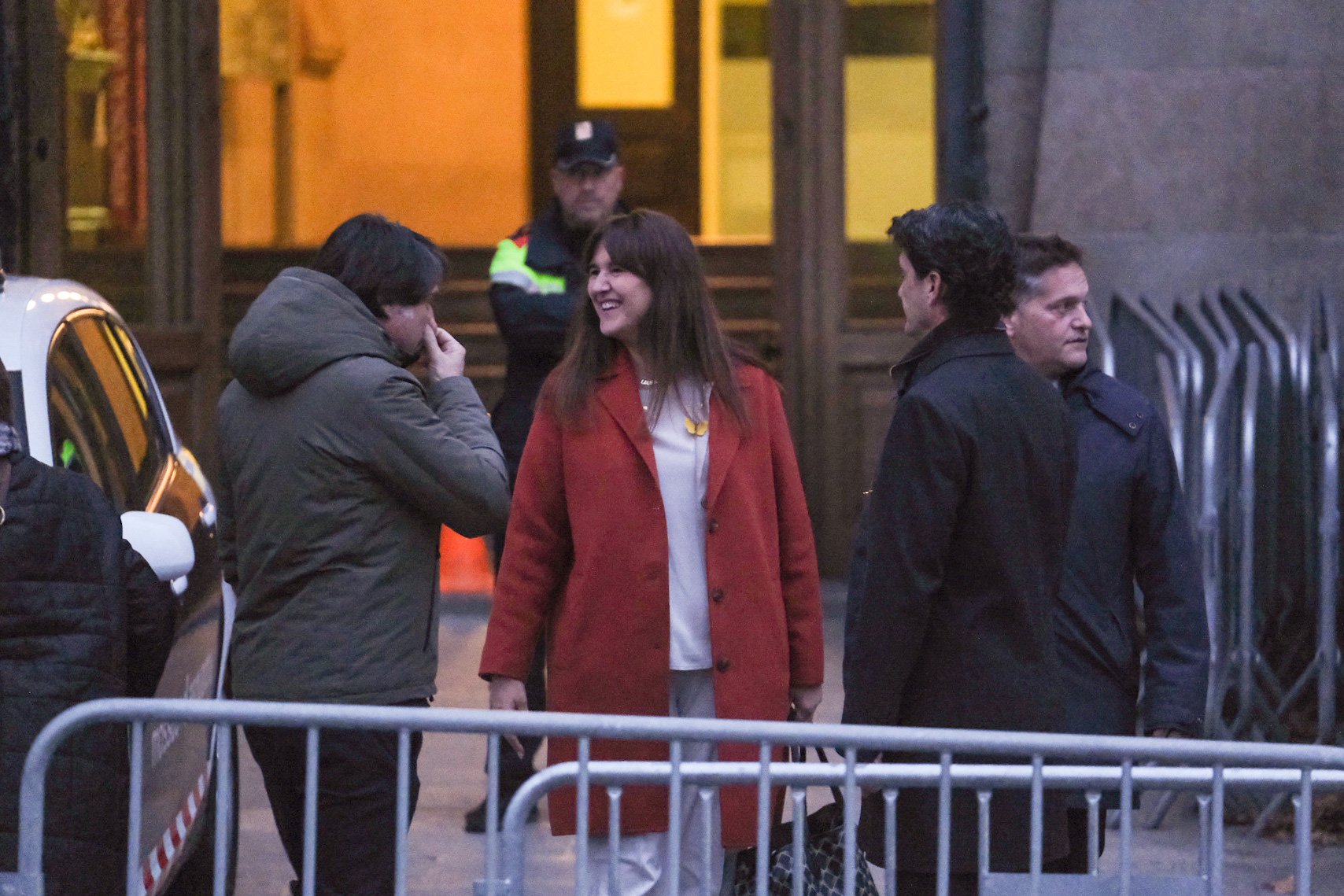Forcefully, systematically, and without trying to disguise the irritation that some witnesses have generated in her. Laura Borràs defended herself before the Catalan High Court (TSJC) this afternoon against the charges she faces over alleged splitting of contracts at the Institute of Catalan Letters (ILC) during the period in which she was its director. She gave a head-on rebuttal against the testimony of the ILC employee Assumpta Pagespetit, who on Wednesday asserted that she had warned her repeatedly of irregularities in the contracting, and also took aim at the defence evidence put up by the other two defendants, Isaías Herrero and Andreu Pujol, bringing to light an expert witness analysis that they had agreed to bring to the case jointly, for which she paid 1,800 euros, but which had not become part of the evidence.
Although the suspended speaker of the Catalan Parliament and president of Junts refused to respond to questions from the prosecution or the other defence lawyers, as she is entitled to do, answering only the questions of her own lawyer, Isabel Elbal, her testimony lasted almost two hours. In fact, she became so enthusiastic in her responses to her lawyer that the presiding judge, Jesús María Barrientos, called her to attention, and instructed her to direct her answers to the court and not to her defence team.
Key witness
Throughout her testimony, Borràs attributed to Pagespetit, whom she described as "an employee with a lot of experience, meticulous, inflexible and demanding", the responsibility for the correct drawing up of the contracts to renew the ILC website; on repeated occasions, she let it slip that this employee had the pretension of putting her own job on a level with that of a manager, "beyond administrative tasks"; and she assured that Pagespetit "always" followed the instructions given to her without ever warning about non-compliance or irregularities. "Believe me: a file that passes through Pagespetit's hands is a ten-out-of-ten file," she replied.
And so, to what did she attribute last Wednesday's statement by the official? her lawyer asked her. "I understand that being subjected to a judicial process, with statements and interrogations, is an uncomfortable situation and everyone responds to this circumstance as best they can. I understand that she wanted to remove the responsibility from over her, but she was a very responsible person," replied Borràs, attributing Pagespetit's statements to an attempt to exonerate herself.
The effort to try to defuse the testimony of the ILC official required almost half of the time that Borràs spent on the stand, after which she removed a bottle of water from a large bag that she had placed on the courtroom floor, and took a drink, before continuing.
The phantom expert
The next objective was the defence of the web expert Isaías Herrero, conducted by lawyer Marina Roig. Borràs complained that she had requested, together with the rest of the defences, an expert opinion to prove that the work for which Isaías Herrero was contracted had been completed, and he had been paid at competitive prices. She detailed that her husband paid 1,815 euros through the family account for this expertise, but that at the moment of truth, this study was not brought to trial.
While she was speaking, Borràs put her hand back into her bag and with a swift movement put on the table the 700-page draft of the expert report that she reported she had paid for but not received. Barrientos ordered it removed, and the stack of papers went back into the bag. The judge warned that it was not the correct procedural moment to present this evidence. The defence countered that they had only had three days to react to what they described as a secret agreement between the rest of the defendants and the prosecution.
The defence lawyer of Isaías Herrero did not have the opportunity to cross-examine Borràs in response to these points. However, the lawyer Marina Roig wanted her questions to be heard. She thus asked Borràs, knowing that she would not have a response, if she was aware that the report had not been completed, that it had not been completed because the prosecution did not present the accusation of misuse of funds and if she was aware that this study was based on the emails contested by the defence.
The trial continues on Wednesday, with its final session, at which the two prosecutions will announce whether, in the end, they will lower the sentence deamdns for Herrero and Andreu Vidal, after the accords revealed a day before the trial began. In addition, the lawyers will present their concluding reports.

